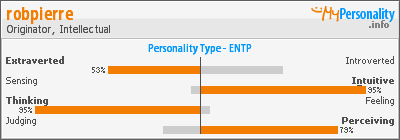Post by Robespierre - P.R. of Debro on Sept 23, 2007 8:38:49 GMT -5
Spelling Alphabet and ID Codes
A resolution to reduce barriers to free trade and commerce.
Category: Free Trade
Strength: Significant
Proposed by: Gaffa Territories
Description: Believing that a standard, easily used and understood system of identifying vehicles used for international travel and transportation can promote both safety and efficient management of air, space, sea, and land travel, which in its turn will reduce bureaucracy and costs of cross-border commerce;
Recognising that a wide variety of writing systems, using varied alphabets, syllabaries, and number systems are in use among the nations of the United Nations;
Further recognising that, even when languages use the same alphabet, differing names may be used for the same letter or numeral;
Understanding that, except as detailed below, most nations will continue to use their own alphabets, number systems and pronounciations in most situations.
Also understanding that member nations may already have effective systems established for identifying vehicles operated within their nations and that mandated replacement of these systems could be costly and inefficient;
Defining, for the purposes of this resolution, "identification code" as a unique set of symbols (letters and numbers) used to identify specific vehicles;
Defining "standard symbology" as a standard set of symbols to be used in constructing identification codes: the 26 letters of the English ("Roman") alphabet plus the Arabic numerals 0 through 9;
Defining "spelling alphabet" as a sequence of easily pronounced, easily distinguished, two-syllable words representing letters of the alphabet, for example, "ALFA" for "A", "BRAVO" for "B", plus easily pronounced and distinguished pronunciations for numerals, and
Defining, for the purposes of this resolution, an "international vehicle" as any air, space, sea, land, or amphibious vehicle that is designed, intended, or likely to be used for international travel.
The United Nations will:
1. Devise and publish a standard spelling alphabet for use by all operators of international vehicles.
2. Assist member nations, as required and requested, in installing the standard spelling alphabet in their nations.
Member Nations:
1. Shall assign an identification code, using the standard symbology, to all international vehicles registered within their nations.
2. Shall include instruction in the standard spelling alphabet in the training of all operators of international vehicles.
3. Are urged to adopt the standard spelling alphabet for domestic use.
4. May continue to use existing systems of vehicle identification on all vehicles within their jurisdictions. Note, however, that the identification code required by this resolution must either replace or be added to such identification of international vehicles, at the nation's sole discretion.
5. May deny access to their lands, territorial waters, and air space to any vehicle which does not bear an identification code in conformance with this resolution or whose operator fails or refuses to use the standard spelling alphabet.
6. Must share information concerning identification codes necessary for effective operation of international organizations or organizations in relevant foreign nations which provide air traffic control, rescue, traffic safety, or similar services.
Co-author: Ausserland
A resolution to reduce barriers to free trade and commerce.
Category: Free Trade
Strength: Significant
Proposed by: Gaffa Territories
Description: Believing that a standard, easily used and understood system of identifying vehicles used for international travel and transportation can promote both safety and efficient management of air, space, sea, and land travel, which in its turn will reduce bureaucracy and costs of cross-border commerce;
Recognising that a wide variety of writing systems, using varied alphabets, syllabaries, and number systems are in use among the nations of the United Nations;
Further recognising that, even when languages use the same alphabet, differing names may be used for the same letter or numeral;
Understanding that, except as detailed below, most nations will continue to use their own alphabets, number systems and pronounciations in most situations.
Also understanding that member nations may already have effective systems established for identifying vehicles operated within their nations and that mandated replacement of these systems could be costly and inefficient;
Defining, for the purposes of this resolution, "identification code" as a unique set of symbols (letters and numbers) used to identify specific vehicles;
Defining "standard symbology" as a standard set of symbols to be used in constructing identification codes: the 26 letters of the English ("Roman") alphabet plus the Arabic numerals 0 through 9;
Defining "spelling alphabet" as a sequence of easily pronounced, easily distinguished, two-syllable words representing letters of the alphabet, for example, "ALFA" for "A", "BRAVO" for "B", plus easily pronounced and distinguished pronunciations for numerals, and
Defining, for the purposes of this resolution, an "international vehicle" as any air, space, sea, land, or amphibious vehicle that is designed, intended, or likely to be used for international travel.
The United Nations will:
1. Devise and publish a standard spelling alphabet for use by all operators of international vehicles.
2. Assist member nations, as required and requested, in installing the standard spelling alphabet in their nations.
Member Nations:
1. Shall assign an identification code, using the standard symbology, to all international vehicles registered within their nations.
2. Shall include instruction in the standard spelling alphabet in the training of all operators of international vehicles.
3. Are urged to adopt the standard spelling alphabet for domestic use.
4. May continue to use existing systems of vehicle identification on all vehicles within their jurisdictions. Note, however, that the identification code required by this resolution must either replace or be added to such identification of international vehicles, at the nation's sole discretion.
5. May deny access to their lands, territorial waters, and air space to any vehicle which does not bear an identification code in conformance with this resolution or whose operator fails or refuses to use the standard spelling alphabet.
6. Must share information concerning identification codes necessary for effective operation of international organizations or organizations in relevant foreign nations which provide air traffic control, rescue, traffic safety, or similar services.
Co-author: Ausserland



